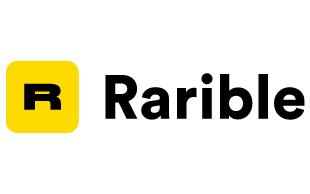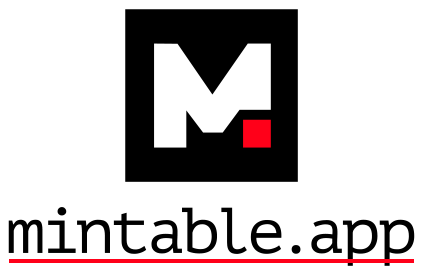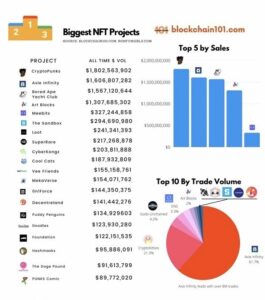Non-reciprocable token (NFT, non-fungible token) is a type of cryptographic token, each specimen of which is unique and cannot be replaced by another analogous token without changing the value and substance of the object.
Non-reciprocable token is a certificate of uniqueness of a digital object – a digital cryptographic certificate that confirms ownership of a digital asset. The NFT does not prevent copying of a digital artifact, but only secures ownership of the original copy of a digital asset. NFT tokens are used on open platforms to confirm ownership of digital assets. NFT tokens are most commonly used as examples of computer art, collectible digital objects, and characters in online games. Fully digital art was one of the first uses of unique tokens, as they provide evidence of the authenticity and possession of a digital object.
Like cryptocurrency, NFT is created using a blockchain that acts as a database to record all transactions. Blockchain guarantees authenticity of non-reciprocable tokens. With this system, any user can verify the original and history of each particular NFT. By buying a NFT token, the user buys a certificate on the product. The product itself is not moved anywhere. It is on the Perpetual Repository (IPFS). This certificate is essentially a line of code that confirms that it is the owner of the token who owns the original copy of the object. The NFT token is compared to a painting that may belong to a gallery, a museum or a private individual, but the audience can see it in a catalogue or exhibition.
The NFT market grows and develops every year, and captures millions of investors, collectors, gamers, and all those who are interested in obtaining unique objects in digital form around the world. In 2021, the NFT market showed an increase of 2,500% compared to 2020. The main beneficiaries of the NFT market were websites (NFT marketplaces), which provide the opportunity for the simplest purchase and sale of NFT.
NFT marketplace operating principle
Unlike cryptocurrency (BTC, Ethereum, etc.) it is not possible to trade non-reciprocable tokens directly on ordinary cryptocurrency exchanges. You can buy and sell NFT on special trading platforms that allow to release, store and trade non-reciprocable tokens. Major marketplaces such as:





